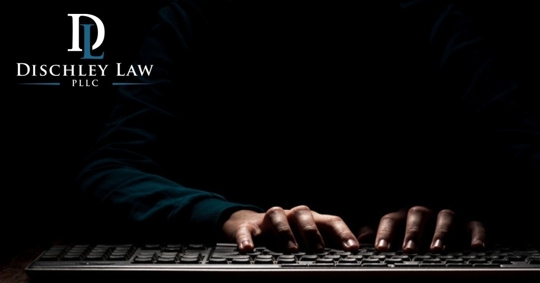Understanding RICO Charges
When people hear the phrase "organized crime," most think of movies or TV shows. But in reality, charges brought under the federal RICO Act are much more serious and can have life-altering consequences. The RICO Act was created to take down criminal organizations, but its broad scope means individuals accused of being connected to these groups can face complex legal battles.
Understanding what RICO charges mean, how they work, and what defenses are available is key if you or someone you know is dealing with such a case.
What Are RICO Charges?
The Racketeer Influenced and Corrupt Organizations (RICO) Act is a federal law passed in 1970 to combat organized crime. Why was it necessary? Proving that high-ranking leaders of criminal organizations were guilty of crimes like drug trafficking or illegal gambling used to be almost impossible. These individuals often avoided charges because they weren't the ones carrying out illegal activities directly.
RICO changed the game. It allows prosecutors to hold these leaders accountable by connecting them to crimes committed by their organization. The law covers a wide range of offenses, from bribery and extortion to fraud and money laundering. Essentially, if someone benefits from or helps plan criminal activity through an enterprise, they could face a RICO charge—even if they didn’t personally commit the offense.
Breaking Down RICO Cases
To convict someone under RICO, the government needs to prove three major things. First, there must be an "enterprise" involved. This could be a business, partnership, or even an informal group that works together in some way. Second, prosecutors need to show a "pattern of racketeering activity," which means at least two linked crimes occurred within ten years. Lastly, they have to provide solid evidence that the defendant was linked to this enterprise and benefited from its criminal activities.
These cases are incredibly detailed and require mountains of evidence. Defendants often face accusations of crimes they didn’t commit themselves but were connected to through their involvement in the organization.
Examples of Crimes Under RICO
RICO covers an extensive list of illegal actions. Common offenses include embezzlement, where someone steals money they were trusted to manage, or money laundering, which hides the origins of illegally earned money. Bribery is another example, especially in cases involving politicians or corporate figures. Finally, obstruction of justice, which includes influencing witnesses or tampering with evidence, can be part of RICO allegations.
The point isn’t just the single crime but how these actions are tied to a larger criminal enterprise. This broad umbrella makes RICO a powerful tool for prosecutors.
Fighting RICO Allegations
How to Defend Yourself Against RICO Charges
Facing RICO allegations is overwhelming, but there are ways to fight back. A strong legal defense often starts by challenging the government’s claims about the criminal "enterprise." If the group in question doesn’t meet the legal definition of an enterprise, the charges may not stick.
Another approach is to argue that there wasn’t a true "pattern" of illegal activity. The two crimes must be connected and not isolated events. If the prosecution can’t prove that link, the case weakens. These legal strategies require experienced attorneys who know RICO inside out.
The Role of Evidence and Discovery
Evidence is the backbone of any RICO case. During the discovery phase, both sides gather documents, witness statements, and other pieces of proof to build their arguments. For the defense, this stage is critical. It’s an opportunity to uncover inconsistencies in the prosecution’s case or find proof supporting the defendant’s innocence.
A skilled lawyer knows how to use subpoenas, depositions, and other legal tools to strengthen their client’s position. Since RICO cases often involve countless documents and complex investigations, having savvy, detail-oriented legal representation can make all the difference.
Plea Deals in RICO Cases
Given the seriousness of RICO penalties, plea deals are sometimes an option. These agreements allow defendants to plead guilty to lesser charges in exchange for softer sentences. But deciding to take one is never easy. It depends on the strength of the prosecution’s case, possible outcomes at trial, and the long-term impact on personal and professional life.
Defendants considering a plea deal need to work closely with their attorney to weigh the pros and cons. This decision could shape their future, so it’s crucial to choose carefully.
The Impact of a RICO Conviction
Serious Legal Penalties
RICO convictions come with severe consequences. Each racketeering count can lead to up to 20 years in prison, and for especially serious crimes, life sentences are possible. Fines are also hefty, often calculated as double the amount of money earned through illegal activities.
Additionally, the government can seize any assets tied to the crimes, including homes, businesses, or bank accounts. The financial and personal losses from a RICO conviction can be devastating.
Damaging Reputations and Careers
The effects of a RICO conviction extend far beyond the courtroom. Being linked to organized crime can ruin a person’s reputation and career. For businesses, public trust erodes quickly when criminal charges surface. Partners, clients, and even employees may distance themselves, causing lasting damage to growth and profitability.
These consequences highlight why a strong legal defense is vital for anyone facing RICO accusations. It’s not just about staying out of prison; it’s about preserving your future.
Need Legal Help? Contact Our Team
If you're dealing with RICO charges or want to protect your business from even the appearance of wrongdoing, you don’t have to face it alone. At Dischley Law, PLLC, our experienced attorneys in Manassas, VA, specialize in navigating complex cases like these. We provide the guidance and strategies you need to fight unfair accusations or build a solid compliance plan to avoid legal trouble.
Call us today at (703) 215-9337 for a confidential consultation. We’re here to help you take the first step toward protecting your rights, your reputation, and your future.

